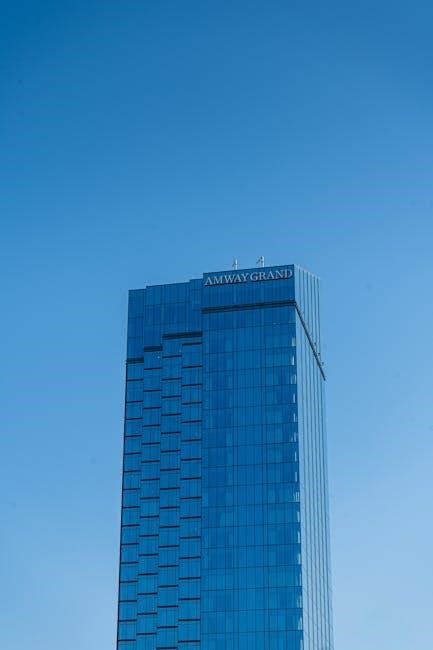
michigan fireworks law 2024 pdf
The Michigan Fireworks Law 2024 updates regulations on consumer fireworks, emphasizing safety, permitted usage, and penalties․ It outlines legal guidelines, restrictions, and enforcement measures to ensure public safety․
The law addresses types of allowed fireworks, specific usage periods, and prohibited areas․ It also highlights environmental concerns and provides resources like the Michigan Fireworks Law 2024 PDF for detailed information․
1․1 Overview of the Law
The Michigan Fireworks Law 2024 regulates the sale, possession, and use of consumer fireworks, balancing public safety and recreational enjoyment․ It legalizes certain fireworks, such as firecrackers and bottle rockets, while restricting others like aerial fireworks․ The law prohibits use on public property, including schools, churches, and sidewalks, with violations punishable by fines up to $500․ Permitted usage periods include June 29 to July 4, Memorial Day, and Labor Day weekends, with extended hours on July 5 if it falls on a Friday or Saturday․ The law aims to reduce injuries and environmental impact while ensuring compliance through enforcement measures․
1․2 Importance of Compliance
Compliance with the Michigan Fireworks Law 2024 is crucial to ensure public safety, reduce injuries, and protect property․ Non-compliance can result in legal penalties, fines, and even criminal charges, depending on the severity of violations․ Adhering to the law helps maintain community peace and prevents conflicts, especially in densely populated areas․ It also safeguards against potential legal actions for damages caused by misuse․ By following the regulations, individuals contribute to a safer environment and uphold the balance between recreational enjoyment and responsible behavior․ Compliance fosters a culture of respect for the law and community well-being, ensuring fireworks are enjoyed responsibly and safely․
History of Fireworks Legislation in Michigan
Michigan’s fireworks laws have evolved significantly, starting with the Fireworks Safety Act of 2011, which legalized certain consumer fireworks․ The 2024 updates refine regulations for safety and enforcement․
2․1 Enactment of the Fireworks Safety Act 2011
The Fireworks Safety Act of 2011 was enacted to regulate the use and sale of fireworks in Michigan, allowing certain consumer fireworks․ This legislation aimed to reduce illegal imports from neighboring states and promote public safety․ It permitted the sale of larger, more elaborate fireworks while requiring sellers to obtain proper permits․ The law also established age restrictions for purchasers and outlined safety guidelines for usage․ This act marked a significant shift in Michigan’s approach to fireworks, balancing economic opportunities with public safety concerns․ The 2011 law laid the groundwork for future updates, including the 2024 amendments․
2․2 Amendments and Updates for 2024
The 2024 amendments to Michigan’s fireworks law introduced stricter regulations to enhance safety and reduce disturbances․ Key updates include limits on the types of consumer fireworks allowed, such as banning certain aerial devices in densely populated areas․ The permitted days for fireworks use were reduced, now mainly restricted to federal holidays and specific dates․ Noise level restrictions were also tightened, capping decibel levels at 90 dB for consumer fireworks․ Additionally, the 2024 updates streamlined licensing processes for sellers and increased penalties for non-compliance․ These changes aim to balance public enjoyment with community safety and environmental protection, addressing concerns raised since the 2011 Act․
Permitted Fireworks and Usage
Michigan’s 2024 law allows specific consumer fireworks, including ground and aerial devices, under strict regulations․ Usage is permitted on select days like holidays and weekends only․
3․1 Types of Consumer Fireworks Allowed
The Michigan Fireworks Law 2024 permits the use of consumer fireworks, including lowimpact items like sparklers, fountains, and ground-based cakes․ Aerial devices, such as bottle rockets and roman candles, are also allowed for personal use․ However, the law prohibits certain high-hazard fireworks, such as professional display fireworks, which require special licensing․ The classification of permitted fireworks aligns with federal standards, ensuring safety and reducing risks․ Residents are encouraged to verify local ordinances, as some municipalities may impose stricter regulations on specific types of fireworks․ Compliance with state and local rules is essential to avoid penalties and ensure safe celebrations․
3․2 Permitted Days and Hours for Fireworks Use
Under the Michigan Fireworks Law 2024, consumer fireworks can only be used on specific days and within designated hours․ These include Independence Day (July 4), New Year’s Eve (December 31), Memorial Day weekend, and Labor Day weekend․ Fireworks are permitted from 8:00 AM to 12:00 AM on these days, with extended hours until 1:00 AM on January 1 and July 5 (if July 4 falls on a weekday)․ Local ordinances may further restrict usage, so residents must check municipal rules․ Violating these time restrictions can result in fines or penalties, emphasizing the importance of adhering to both state and local regulations․
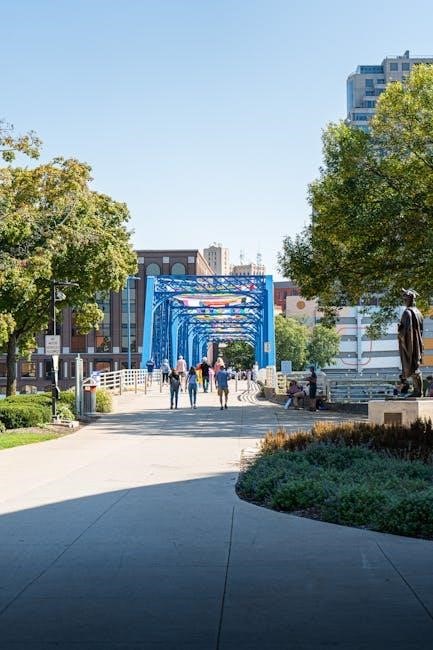
3․3 Restrictions on Public Property
The Michigan Fireworks Law 2024 prohibits the use of consumer fireworks on public property, including parks, schools, beaches, and government buildings․ This restriction aims to protect public safety and prevent damage to shared spaces․ Additionally, fireworks are banned near hospitals, nursing homes, and places of worship․ Exceptions may apply for professionally organized displays with proper permits․ Violating these restrictions can lead to fines and legal action․ Residents are encouraged to use fireworks responsibly on private property only, ensuring compliance with local ordinances and state regulations to avoid penalties and protect community resources․
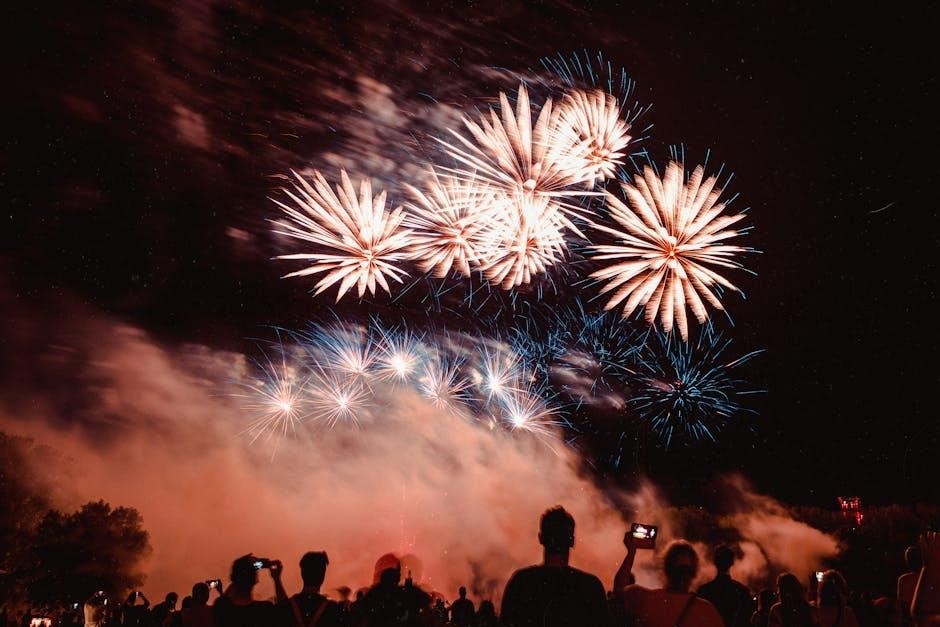
Safety Guidelines and Precautions
Michigan Fireworks Law 2024 emphasizes strict safety measures to prevent accidents․ Always follow manufacturer instructions, keep water nearby, and avoid fireworks near flammable materials or during burn bans․
4․1 General Safety Tips for Fireworks Use

Michigan Fireworks Law 2024 PDF outlines essential safety tips to minimize risks․ Always read and follow the manufacturer’s instructions, and ensure adult supervision for minors․ Use fireworks only in open areas, away from buildings, vehicles, and flammable materials․ Keep a water source or fire extinguisher nearby․ Avoid using fireworks in windy or dry conditions, and never relight a dud․ Dispose of used fireworks properly by soaking them in water before discarding․ Respect local ordinances and noise restrictions, especially in residential areas․ These precautions help ensure safe and enjoyable celebrations while complying with state regulations․
4․2 Specific Safety Precautions for 2024
The Michigan Fireworks Law 2024 PDF introduces updated safety measures to address emerging risks․ A key precaution is the mandatory use of grounding rods for aerial fireworks to prevent misfires․ Additionally, the law requires a minimum 10-foot safety radius around fireworks setups․ Sparklers, while popular, must now be used with heat-resistant gloves for minors․ The 2024 guidelines also emphasize stricter storage requirements, mandating fireworks be kept in cool, dry places away from ignition sources․ Local authorities may conduct spot checks to ensure compliance․ These precautions aim to reduce accidents and enhance public safety during celebrations, aligning with the state’s commitment to responsible fireworks use․
4․3 Role of Local Authorities in Enforcement
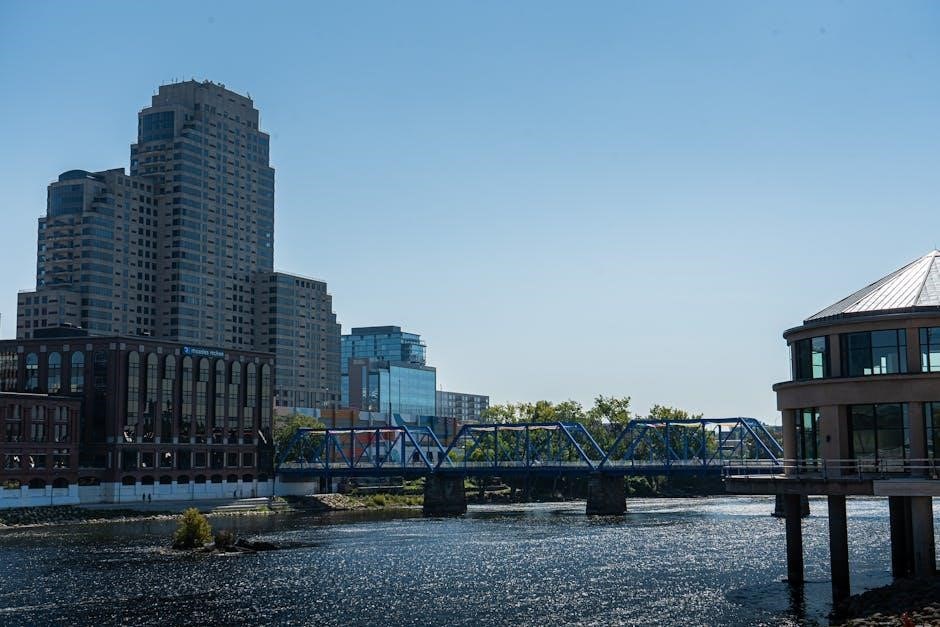
Local authorities play a crucial role in enforcing Michigan’s fireworks laws, ensuring public safety and compliance․ They are responsible for monitoring fireworks usage, responding to complaints, and issuing fines for violations․ Municipalities may deploy officers to conduct spot checks during peak periods, such as holidays․ Additionally, local governments can enact stricter ordinances tailored to their communities․ Collaboration with state agencies is encouraged to align enforcement efforts․ Public education campaigns are also a key responsibility, informing residents about legal guidelines and safety practices․ This dual approach of enforcement and education helps maintain order and reduces risks associated with fireworks use in local areas․
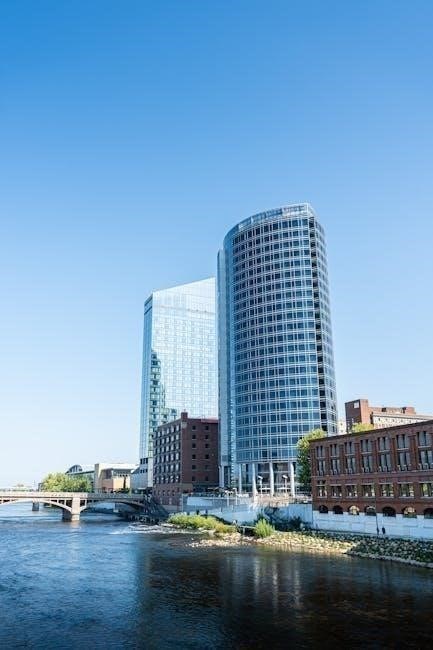
Legal Penalties and Enforcement
Violations of Michigan’s fireworks laws can result in fines, criminal charges, and confiscation of illegal fireworks․ Enforcement agencies ensure compliance, prioritizing public safety and legal adherence․
5․1 Fines for Violating Fireworks Laws
Fines for violating Michigan’s fireworks laws vary based on the severity of the offense․ First-time offenders may face penalties ranging from $500 to $1,000, while repeat violations can lead to fines of up to $2,500․ Additional fees and court costs may apply․ illegal possession or use of commercial-grade fireworks can result in higher fines, up to $5,000․ Local municipalities may also impose their own fines, which could exceed state penalties․ Fines are enforced by law enforcement agencies and are intended to deter illegal fireworks activity․ Non-payment of fines may result in further legal consequences․ Compliance with the law is essential to avoid financial penalties․
5․2 Criminal Charges for Severe Violations
Criminal charges may apply for severe violations of Michigan’s fireworks laws․ Severe violations include using illegal fireworks, selling fireworks without a license, or causing harm to individuals or property․ Offenders may face misdemeanor or felony charges, depending on the severity․ Misdemeanor charges can result in up to one year in jail and significant fines․ Felony charges, for more serious offenses, may lead to longer prison sentences․ Repeat offenders face harsher penalties․ Law enforcement agencies enforce these criminal charges, and legal consequences are enforced through the court system․ Criminal charges aim to hold individuals accountable for reckless or illegal fireworks use․ Compliance is crucial to avoid legal repercussions․
5․3 Role of Law Enforcement Agencies
Law enforcement agencies play a critical role in enforcing Michigan’s fireworks laws․ They monitor compliance, respond to complaints, and issue citations for violations․ Officers are authorized to confiscate illegal fireworks and impose penalties as outlined by the law․ Their efforts focus on ensuring public safety and reducing fireworks-related hazards․ Agencies collaborate with local governments to address concerns and educate the public about legal requirements․ By actively enforcing the law, they help prevent accidents and maintain community well-being․ Their presence deters illegal activities and ensures that residents adhere to the regulations․ Law enforcement is essential for upholding the intent of the Michigan Fireworks Law 2024․
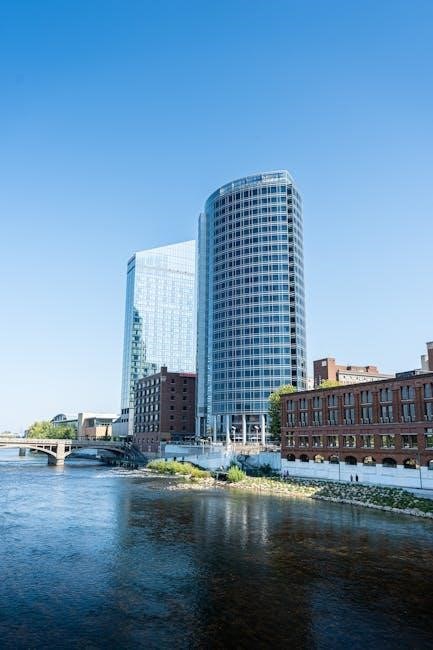
Public Safety and Fireworks-Related Injuries
Michigan’s 2024 fireworks law prioritizes public safety to minimize injuries․ Strict regulations and penalties aim to reduce accidents and ensure responsible use, protecting communities statewide effectively always․
6․1 Statistics on Fireworks-Related Injuries in Michigan
Michigan reports a significant number of fireworks-related injuries annually․ According to recent data, emergency rooms treat hundreds of cases, with a higher incidence during holidays․ Children and young adults are disproportionately affected, often due to improper handling of consumer fireworks․ The 2024 law emphasizes stricter enforcement to reduce these incidents, focusing on public education and safety campaigns․ Historical trends show peak injuries around Independence Day and New Year’s Eve, highlighting the need for vigilant compliance with safety guidelines․ Authorities are working to curb these numbers through awareness and stricter penalties for reckless fireworks use․
6;2 Liability for Damages Caused by Fireworks
Under the Michigan Fireworks Law 2024, individuals are held liable for damages caused by fireworks․ This includes property damage, personal injuries, or fatalities resulting from improper or illegal use․ Liability extends to both the person igniting the fireworks and, in some cases, property owners who allow fireworks use on their land․ Insurance coverage may be required to address such incidents, but policies often exclude damages caused by illegal activities․ The law emphasizes personal responsibility, ensuring that reckless behavior does not burden others financially or legally․ This provision aims to encourage safe practices and accountability within communities․
6․3 Insurance and Legal Recourse
Under the Michigan Fireworks Law 2024, individuals affected by fireworks-related damages can seek legal recourse․ Insurance policies may cover accidental damages, but coverage often excludes illegal or reckless fireworks use․ Victims can file lawsuits to recover compensation for medical expenses, property damage, or emotional distress․ Legal action may also target manufacturers or sellers if defective products caused harm․ Law enforcement assists in identifying liable parties, ensuring accountability․ Understanding insurance options and legal rights is crucial for those impacted by fireworks incidents, helping them navigate the process of seeking justice and financial recovery․ This section highlights the importance of legal preparedness and awareness․
Environmental Impact of Fireworks
Metal particles and chemicals in fireworks contribute to air and water pollution, harming ecosystems․ Noise pollution disrupts wildlife habitats․ Michigan’s 2024 law addresses these environmental concerns․
7․1 Noise Pollution Concerns
The 2024 Michigan Fireworks Law addresses noise pollution caused by fireworks, recognizing their disruptive impact on communities and wildlife․ Loud explosions disrupt peaceful neighborhoods, especially during late hours, affecting sleep and mental well-being․ Pets and wildlife often experience heightened stress due to the sudden, intense noises․ The law emphasizes responsible use, encouraging adherence to local noise ordinances․ Enforcement measures include fines for excessive noise violations, ensuring quieter environments, particularly in residential areas․ This focus aims to balance recreational use with community harmony and environmental protection․
7․2 Air and Water Pollution from Fireworks
The 2024 Michigan Fireworks Law highlights concerns about air and water pollution caused by fireworks․ Fireworks release harmful chemicals, such as perchlorates and heavy metals, into the atmosphere, contributing to poor air quality and potential health risks․ Additionally, firework residues can contaminate water bodies, posing threats to aquatic ecosystems․ The law encourages eco-friendly alternatives and stricter regulations on firework composition to minimize environmental impact․ Proper disposal of firework debris is also emphasized to prevent water pollution․ These measures aim to protect Michigan’s natural resources while allowing responsible firework use during celebrations․
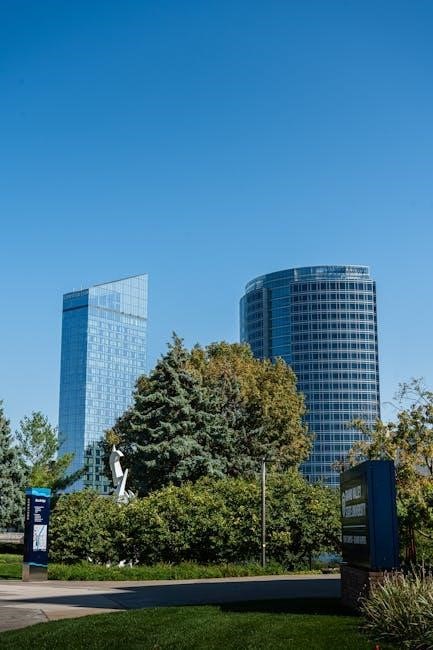
Licenses and Permits for Fireworks
Fireworks sales require a state license, with age and safety standards enforced․ Public displays need permits, ensuring safety and compliance with local regulations under the 2024 law․
8․1 Requirements for Selling Fireworks
Selling fireworks in Michigan requires a valid state license issued by the Bureau of Fire Services․ Applicants must meet age requirements, pass background checks, and ensure their facilities comply with safety standards․ The license application process includes submitting detailed paperwork, paying fees, and undergoing inspections to verify storage and sales conditions․ Retailers must also provide proof of liability insurance and complete mandatory training programs․ Failure to comply with these requirements can result in penalties, fines, or license revocation․ The 2024 law emphasizes stricter enforcement of these regulations to ensure public safety and prevent illegal sales․
8․2 Permits for Public Fireworks Displays
Organizing public fireworks displays in Michigan requires obtaining a permit from local authorities․ Applicants must submit detailed plans, including the location, time, and type of fireworks to be used․ A licensed pyrotechnician must oversee the event, and liability insurance is mandatory․ The 2024 law introduces stricter safety inspections and requires proof of compliance with noise and environmental regulations․ Permits are typically granted for specific events like holidays or festivals․ Local fire departments review applications to ensure safety measures are met; Violations of permit terms can result in fines or event cancellation․ The process ensures public safety while allowing community celebrations to proceed responsibly․
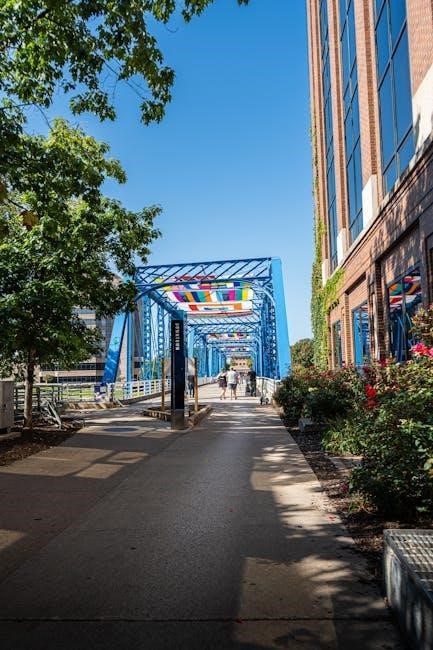
Community Impact and Regulations
Local fireworks regulations vary, impacting community events and residential areas․ Noise and safety concerns lead to stricter rules․ Residents must adhere to maintain harmony and order․
9․1 Local Ordinances and Restrictions
Local ordinances and restrictions play a significant role in regulating fireworks use within specific communities in Michigan․ While state laws provide a general framework, municipalities often impose additional rules to address local concerns․ For instance, some cities and townships may restrict fireworks use to specific days or limit noise levels․ These ordinances aim to balance public safety, noise control, and the enjoyment of fireworks during celebrations․ Residents are encouraged to familiarize themselves with both state and local regulations to avoid penalties․ Local authorities enforce these rules, ensuring compliance and maintaining community harmony․ Always check with your local government for detailed restrictions․
9․2 Impact on Neighborhoods and Events
The 2024 Michigan Fireworks Law addresses the impact of fireworks on neighborhoods and events․ Fireworks can cause disturbances, affecting community relations and potentially disrupting local gatherings․ The law aims to balance regulation with tradition, ensuring public safety and minimizing disruptions․ Local events often feature fireworks, contributing to cultural celebrations and fostering community spirit․ The updated regulations include specific restrictions on timing and locations to maintain harmony, allowing communities to enjoy events responsibly while respecting those affected by the noise․
Resources and Downloads
The official Michigan Fireworks Law 2024 PDF is available on the state’s government website, providing detailed regulations and guidelines for fireworks use․
- Download the PDF from the Michigan State Government portal․
- Additional resources include safety guides and infographics․
10․1 Accessing the Michigan Fireworks Law 2024 PDF
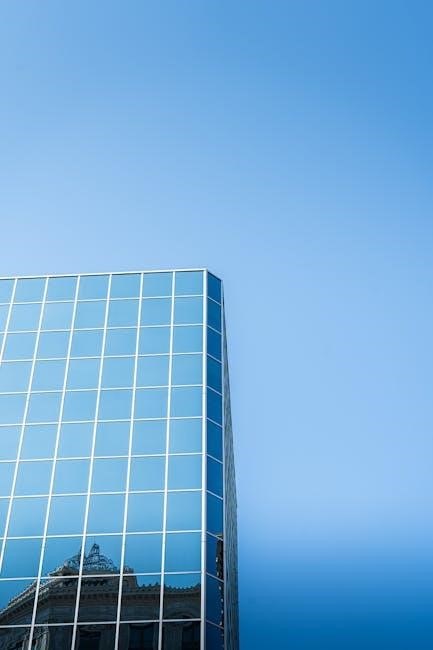
The Michigan Fireworks Law 2024 PDF is an essential resource for understanding the updated regulations and safety guidelines․ It can be downloaded directly from the official Michigan government website or through the Michigan State Police website․ The document provides a comprehensive overview of the law, including permitted fireworks, usage restrictions, and safety protocols․ Additionally, it outlines penalties for non-compliance and offers guidance for businesses and individuals․ For convenience, the PDF is also available on local law enforcement and fire safety department websites․ Accessing this document ensures you have the most accurate and up-to-date information to stay compliant and safe․
10․2 Additional Resources for Fireworks Safety
For comprehensive fireworks safety information, residents can access resources beyond the Michigan Fireworks Law 2024 PDF․ The Michigan State Police website offers detailed guides on fireworks safety, including tips for safe handling and storage․ Additionally, the National Fire Protection Association (NFPA) provides educational materials on fireworks risks and prevention strategies․ Local governments and community centers often distribute pamphlets and host workshops during summer months․ The American Pyrotechnics Association (APA) also offers downloadable safety guidelines and infographics․ These resources help ensure safe and responsible fireworks use, aligning with the 2024 law’s objectives․ Utilizing these tools promotes public awareness and reduces potential hazards․